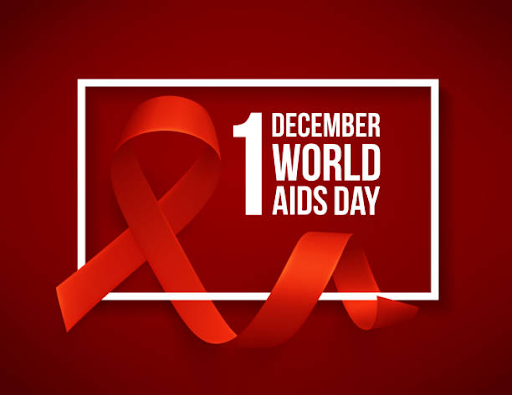#WorldAidsDay: 300,000 Children Infected With HIV In 2020 – Report
The latest HIV and AIDS Global Snapshot warns that the lockdowns contributed to increased infection rates due to spikes in gender-based violence and substantial reductions in health facilities.

In commemoration of World Aids Day, the United Nations Children’s Fund (UNICEF) has said about 300,000 children were newly infected with HIV in 2020, or one child every two minutes.
The UN organisation also said about 120,000 children died from AIDS-related causes during the same period, or one child every five minutes.
UNICEF said this in a press release on Wednesday, Dec. 1st.
As a result of the prolonged COVID-19 pandemic, the latest HIV and AIDS Global Snapshot report warns that the lockdowns contributed to increased infection rates due to spikes in gender-based violence, putting vulnerable children, adolescents, pregnant women, and breastfeeding mothers at increased risk of missing life-saving HIV prevention and treatment services.
Henrietta Fore, UNICEF Executive Director said the HIV epidemic enters its fifth decade amid a global pandemic that has overloaded health care systems and constrained access to life-saving services.
She also said the rise in poverty level, mental health issues, and abuse, is increasing children and women’s risk of infection.
“Unless we ramp up efforts to resolve the inequalities driving the HIV epidemic, which are now exacerbated by COVID-19, we may see more children infected with HIV and more children losing their fight against AIDS,” she said.
The report also estimated that 2 in 5 children living with HIV worldwide do not know their status, and just over half of children with HIV are receiving antiretroviral treatment (ART).
“Some barriers to adequate access to HIV services are longstanding and familiar, including discrimination and gender inequalities,” the report reads.
The report notes that many countries saw significant disruptions in HIV services due to COVID-19 in early 2020. HIV infant testing in high burden countries declined by 50 to 70 percent, with new treatment initiations for children under 14 years of age falling by 25 to 50 percent.
“In 2020, sub-Saharan Africa accounted for 89 percent of new HIV pediatric infections and 88 percent of children and adolescents living with HIV worldwide, with adolescent girls six times more likely to be infected with HIV than boys. Some 88 percent of AIDS-related child deaths were in sub-Saharan Africa.
Despite some progress in the fight against HIV and AIDS, the report says, children and adolescents continued to be left behind across all regions over the past decade.
“Building back better in a post-pandemic world must include HIV responses that are evidence-based, people-centered, resilient, sustainable, and, above all, equitable,” Fore said.
“To close the gaps, these initiatives must be delivered through a reinforced health care system and meaningful engagement of all affected communities, especially the most vulnerable.”
In a separate statement, CiSHAN, a Civil Society for HIV/AIDS in Nigeria said the world is yet to overcome the scourge of HIV due to structural inequalities that obstruct proven solutions to HIV prevention and treatment.
“If we don’t take actions against fighting inequalities, we risk missing the targets to end AIDS by 2030, as well as a prolonged COVID-19 pandemic and a spiraling social and economic crisis,” CiSHAN said.
“Winning the fight against AIDS is not a mirage or difficult goal to achieve, we know what the inequalities obstructing progress are and we know how to tackle them.”
Aladeyelu Adebayo, CiSHAN Southwest Zonal Coordinator said government at all levels must move from commitment to action.
“Governments must promote inclusive social and economic growth. They must eliminate discriminatory laws, policies, and practices in order to ensure equal opportunity and reduce inequalities. In Nigeria, we have tried to restructure the World AIDS day theme to include Sustainability financing,” he said.
World AIDS Day, observed on Dec. 1 of every year since 1988 is an international day dedicated to raising awareness of the AIDS pandemic caused by the spread of HIV infection and mourning those who have died of the disease.
Support Our Journalism
There are millions of ordinary people affected by conflict in Africa whose stories are missing in the mainstream media. HumAngle is determined to tell those challenging and under-reported stories, hoping that the people impacted by these conflicts will find the safety and security they deserve.
To ensure that we continue to provide public service coverage, we have a small favour to ask you. We want you to be part of our journalistic endeavour by contributing a token to us.
Your donation will further promote a robust, free, and independent media.
Donate HereStay Closer To The Stories That Matter




